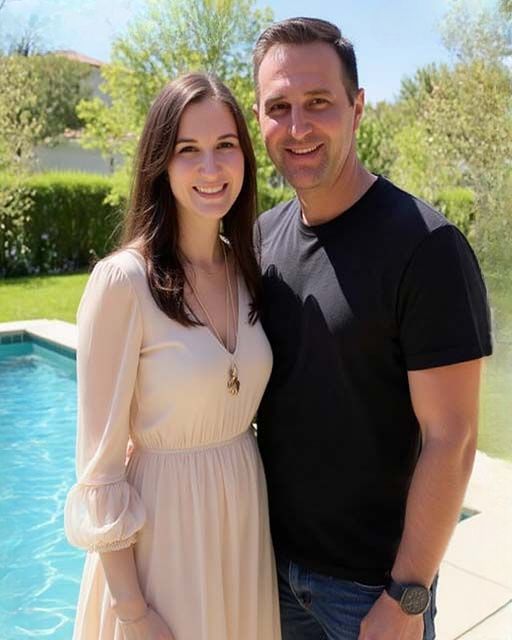I never imagined that a child’s question could unravel years of memories, erode the trust I’d built, and force me to confront a past I thought was distant. When I agreed to babysit my neighbor’s daughter, I expected crayons, laughter, and stories of unicorns—not a revelation that would shake my world.
Her name was Rosie. That afternoon, as we cleaned up our drawings, she looked up at me, wide-eyed. “Why are you wearing my mommy’s necklace?”
Everything froze.
The truth began months earlier. My name is Ava. My husband, Ethan, and I moved to a quiet suburban neighborhood three years ago, leaving behind the chaos of city life for dreams of a family, long walks, and peaceful weekends. But beneath the calm lay grief: repeated miscarriages, quiet sorrow, and unspoken heartache.
Then the necklace arrived. A delicate silver chain, a teardrop-shaped pendant encasing a forget-me-not, left in a small velvet box on our doorstep. No note, no explanation. Ethan insisted it was a mistaken delivery. I kept it anyway, wearing it as a small talisman against the shadows of our lives.
Our new neighbors, Lena and her daughter Rosie, moved in months later. Lena was a single mother, her husband lost two years prior. We bonded quickly, sharing gardening tips, playdates, and bread for herbs. It felt like a friendship that could weather anything—until that afternoon.
Rosie’s words struck like a thunderbolt. “Daddy gave it to her before he went to heaven,” she said, eyes full of certainty.
My heart stopped. I tried to deflect, to act as if nothing had happened. But when the door closed behind Lena, I opened the pendant and saw the words etched inside: To my bluebird.
Not for me. Not mine.
Questions flooded my mind. When did it arrive? Why no note? And most painfully—why did it feel familiar?
When Ethan returned that evening, I confronted him.
“Where did this really come from?” I asked, voice steady but trembling inside.
He hesitated. Then admitted: he had known Lena years ago, before we met. The necklace had belonged to her. He had left it at our door to avoid awkwardness.
Betrayal, grief, confusion—they all collided inside me. That night, I lay awake, replaying every smile, every gesture, wondering if the life I thought I had was real.
The next morning, I returned the necklace to Lena. Her surprise gave way to gratitude, but I didn’t want thanks—I wanted clarity, closure.
Later, I asked Ethan, quietly: “Do you love her?”
“No,” he said immediately. “I love you. I chose you.”
“Then why lie?” I whispered.
He didn’t answer.
In the days that followed, silence dominated our home. We moved around each other carefully, fragile as glass. Therapy helped, conversations and tears exposed layers we’d ignored. Lena avoided me at first, burdened by guilt, but eventually she approached me at the mailbox, a tentative olive branch bridging the space between us.
The necklace was returned. The truth revealed. Trust shaken but not broken. The past acknowledged, yet the present still ours to navigate.
And in that quiet, I realized that sometimes love is tested not by absence, but by the shadows of hidden histories—and the courage it takes to confront them.
